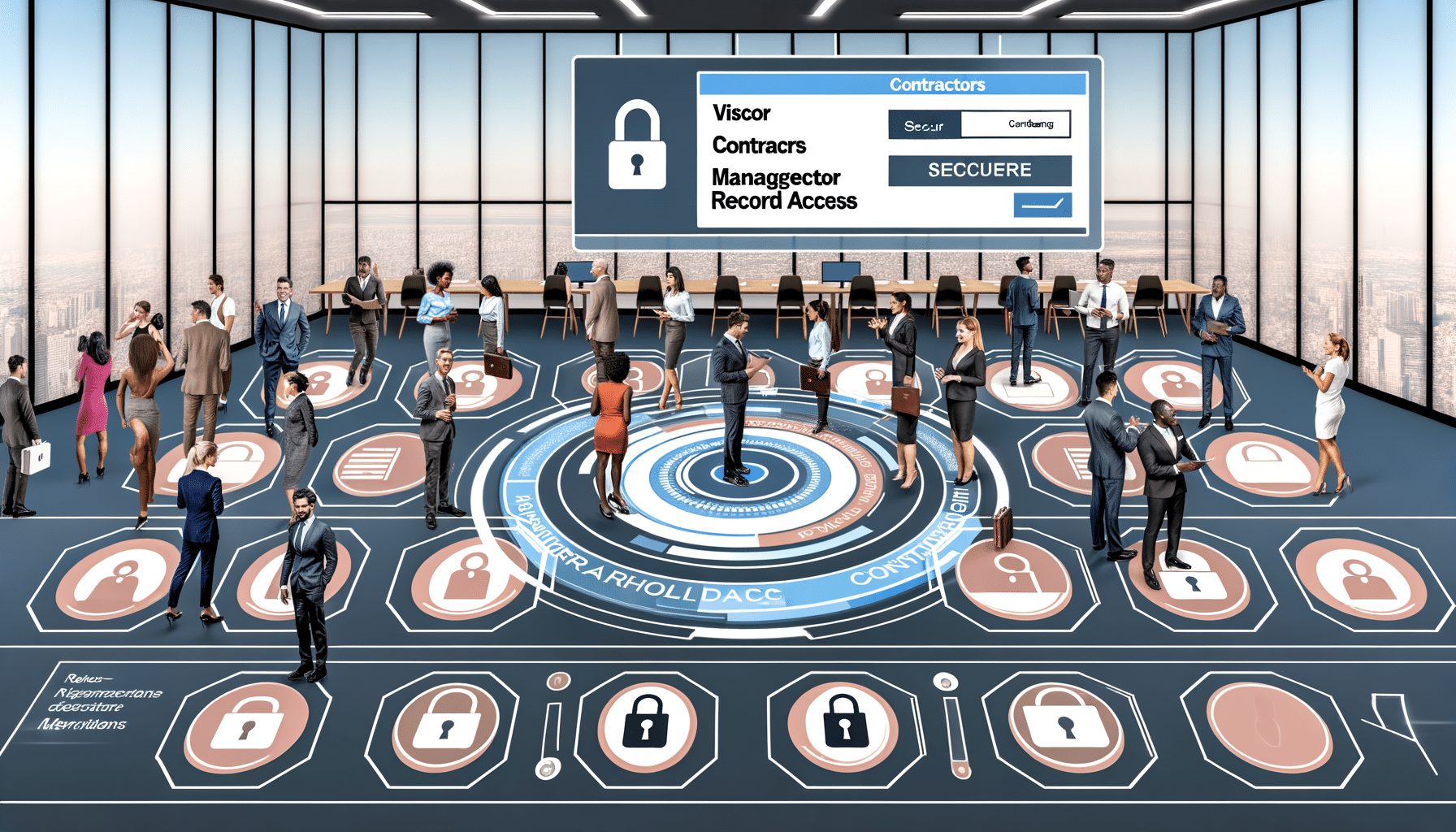- Archive Security
- October 15, 2022
The Rise of Zero Trust Security in Record Keeping

In today’s rapidly evolving digital landscape, maintaining the integrity and confidentiality of records is more critical than ever. With cyber threats becoming increasingly sophisticated, the traditional methods of securing data are no longer sufficient. Enter Zero Trust Security—a game-changing framework that is reshaping the way we approach record-keeping. Let me walk you through how embracing this paradigm is paving the way for the future of secure record management.
Understanding Zero Trust Security
Before diving into its application in record keeping, let’s first understand what Zero Trust Security entails. Unlike conventional security models that rely on perimeter-based defenses, Zero Trust operates on the principle of “never trust, always verify.” This means that no user or system is inherently trusted, even if they are within the organization’s network. Every access request is meticulously authenticated, authorized, and encrypted, ensuring robust security at every interaction.
The Importance of Zero Trust in Record Keeping
Record keeping is an integral part of any organization, encompassing sensitive data that includes financial records, employee information, and customer details. Traditional security measures, often dependent on fortifying the network’s perimeter, are increasingly inadequate against insider threats and sophisticated cyber-attacks. Here’s why Zero Trust is a perfect fit for modern record-keeping needs:
- Enhanced Security: Zero Trust ensures that each access request is scrutinized, minimizing the risk of unauthorized access.
- Data Integrity: The approach ensures that records remain untampered, thanks to continuous verification at every access point.
- Real-Time Monitoring: Organizations maintain a continuous comprehensive view of user activities, strengthening threat detection.
Implementing Zero Trust in Record Keeping
At RecordsKeeper.AI, we are at the forefront of integrating cutting-edge technologies to boost record management. Implementing Zero Trust requires a calculated approach to address various facets of security comprehensively:
1. Multi-Factor Authentication (MFA)
One of the first steps in moving towards a Zero Trust framework is implementing MFA. By requiring more than one form of verification, organizations can significantly reduce the risk of breaches caused by compromised credentials.
2. Micro-Segmentation
This Zero Trust strategy divides the network into smaller, manageable segments, effectively limiting a user’s access strictly to what is necessary for their role. This level of segmentation deters cyber intruders from freely moving within the network.
3. Continuous Monitoring and Analytics
With Zero Trust, every user action is monitored and analyzed for suspicious activity. Employing AI-driven analytics assists in predicting potential threats and enables more rapid responses to any discrepancies.
4. Secure Access to All Records
Zero Trust ensures that all records, regardless of where they are stored or accessed, meet stringent security benchmarks. This global approach to security is vital in today’s era of remote work and cloud-based storage solutions.
RecordsKeeper.AI: Pioneers in Innovative Record Management
As a founder driven by a passion for technological advancement, I’ve witnessed firsthand how a robust Zero Trust framework can redefine record-keeping processes. At RecordsKeeper.AI, we have harnessed AI and Blockchain technologies alongside Zero Trust principles to offer an unrivaled record management experience. Here’s how:
- Automated Categorization: Our AI tools automatically classify and tag records, reducing human error and ensuring precise access control policies.
- Secure Data Rooms: Enable secure sharing with real-time activity tracking to prevent unauthorized data breaches.
- Blockchain Integration: Provides immutable, tamper-proof records, pivotal in compliance and audit scenarios.
The Strategic Advantage of Zero Trust in Business
Beyond security, implementing Zero Trust enhances operational efficiency and fortifies stakeholder confidence. Data breaches can have devastating consequences for reputation and compliance, and adopting Zero Trust acts not just as a defensive measure but a strategic advantage. Legal, compliance, and finance heads benefit immensely by ensuring their records remain secure and compliant with regulations such as GDPR, HIPAA, and SOX.
Conclusion
The path to securing your organization’s critical records isn’t merely about erecting a digital fortress but adopting a philosophy of vigilance and control. Zero Trust offers a robust framework that adapts to the unpredictable nature of contemporary cybersecurity threats. By embedding Zero Trust practices into the core of record keeping, you are taking a pivotal step toward safeguarding your organization’s most valuable asset—its data.
I invite you to learn more about how RecordsKeeper.AI is facilitating this transformation with cutting-edge solutions tailored for the modern organization. Let’s embrace the future of secure, compliant, and efficient record management together.
For those keen to delve deeper into my entrepreneurial journey and insights, follow along with me. Let’s continue to innovate and transform the landscape of data management.
Toshendra Sharma is the visionary founder and CEO of RecordsKeeper.AI, spearheading the fusion of AI and blockchain to redefine enterprise record management. With a groundbreaking approach to solving complex business challenges, Toshendra combines deep expertise in blockchain and artificial intelligence with an acute understanding of enterprise compliance and security needs.
Related Posts


Handling Sensitive Records in Open Offices
Maintaining confidentiality in open workspace layouts.
- December 9, 2024
Archives
- January 2025
- December 2024
- November 2024
- October 2024
- September 2024
- August 2024
- July 2024
- June 2024
- May 2024
- April 2024
- March 2024
- February 2024
- January 2024
- December 2023
- November 2023
- October 2023
- September 2023
- August 2023
- July 2023
- June 2023
- May 2023
- April 2023
- March 2023
- February 2023
- January 2023
- December 2022
- November 2022
- October 2022
- September 2022
Want to get more content like this?
Signup to directly get this type of content to your inbox!!
Latest Post
Document Control for Equipment Maintenance
- January 20, 2025
Managing Records for Multiple Clients
- January 19, 2025
Handling Conference Documentation
- January 18, 2025
Setting Up Department Record Reviews
- January 17, 2025





